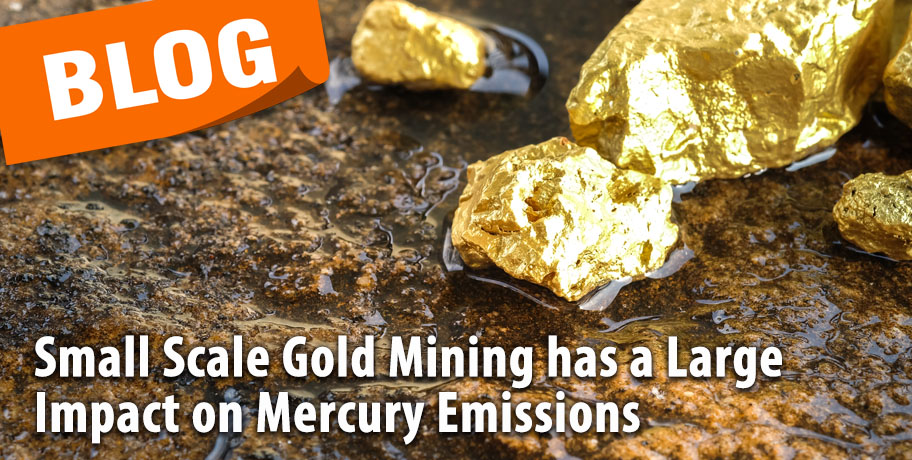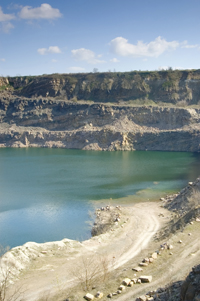Artisanal and small-scale gold mining (ASGM) is defined by the Minamata Convention on Mercury as ‘gold mining conducted by individual miners or small enterprises with limited capital investment and production’. This type of mining often uses liquid mercury which forms an amalgam with the gold ore in the soil. The very small particles of gold are dissolved into the mercury to form a dark grey clump. To release the gold from the amalgam, the alloy is melted over a flame, driving the gaseous mercury vapor into the air and leaving behind the extracted gold. It is estimated that ASGM produces up to 20% of the world’s gold and 35% of all mercury pollution into the environment. Gold mining using mercury is detrimental to the health of workers, their environment, and their communities but there are economic and social considerations that limit the implementation of mercury free mining technologies.
Read MoreTeledyne Leeman Labs Blog
Small Scale Gold Mining has a Large Impact on Mercury Emissions
Posted by Sara Kennedy on May 18, 2022 3:46:54 PM
Tags: mercury, mercury measurement, Mining
Thoughts to Communities Impacted by Mount Polley Mine Breach
Posted by Betsey Seibel on Aug 14, 2014 11:57:00 AM
One week after a tailings pond dam burst at Mount Polley Mine near the cities of Williams Lake and Quesnel, British Columbia, environmental experts are saying it could be one of the worst tailings pond breaches in the world. Early estimates suggest that more than 2.64 billion gallons of mining waste and 4.5 million cubic meters of ground-up rock were released into Polley Lake, Quesnel Lake, Hazeltine Creek and Cariboo Creek. According to the mine’s owners 2013 mine report, substances that are disposed of on-site into the pond include arsenic, copper, lead, manganese, mercury, phosphorus, and selenium; among several other metals. Days following the breach, hundreds of local residents were banned from using the water for drinking or bathing, campgrounds were evacuated, fishing was banned and an emergency was declared.
As a company, we were saddened to read about the breach and by its initial and impending impact. Our first thoughts are with the people and communities in British Columbia who are suffering through this unfortunate situation. This type of disaster can have a devastating impact on the local ecosystem, and its clear that a massive waste removal project will be required in the future. Many are comparing this to a tailings pond breach in Tennessee in 2008, where cleanup was slow and estimated at $600-800 million. Monitoring the rise in toxins absorbed by fish and wildlife has started, and officials are conducting regular water quality tests of area resources to better understand the aftermaths. On a positive note, an early round of tests completed last week found that water “samples indicate that none of the chemical and physical parameter concentrations exceeded B.C. or Health Canada drinking water guidelines.” Unfortunately, “All five testing sites also had zinc levels above chronic, or long-term, exposure limits for aquatic life.”
Read MoreTags: Mining, Interest Stories


